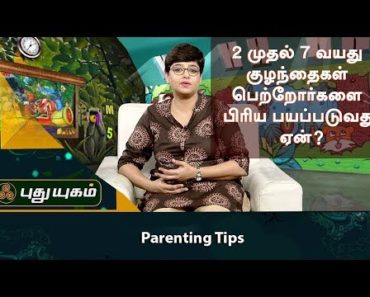Just a few weeks after having a miscarriage in April 2020, Reena Gill was back on the job as a nurse in the acute psychiatry ward of a hospital in Victoria, B.C., working 12-hour shifts in full personal protective equipment, just as the pandemic took off in Canada. She had already used several of her sick days and figured being back at work would be a good distraction.
It wasn’t.
Gill was having a hard time focusing. She kept forgetting things and was constantly second-guessing herself. Her hormones were raging, leading to mood swings and sweating under all that PPE. She found herself getting impatient and even angry, which was totally out of character.
Triggers were everywhere, too, from well-meaning colleagues asking about her pregnancy without knowing what had happened, to a patient in her late 60s who carried delusions about being pregnant and needed to be constantly reassured that she’s not.
“I really wasn’t ready to come back to work,” she says. “I didn’t realize the waves of emotions that were going to come, and I was still healing physically as well.”
About a quarter of pregnancies end in loss, which can lead to a wide range of physical and mental health issues, from mild to severe. People who lose pregnancies often experience pain, bleeding and hormonal changes that can affect their moods. A study published last year in the American Journal of Obstetrics and Gynecology found that a month after an early-pregnancy loss, 29 percent of women experienced PSTD, 24 percent experienced anxiety and 11 percent experienced depression.
Expectant parents who weren’t pregnant can suffer, too. For example, a 2017 systemic review of studies on the impact of pregnancy loss on men found that they can experience many of the same mental health issues as women, although they’re less intense and enduring.
And when people go back to work too soon, typically because they can’t access adequate leave, their physical and mental anguish can intensify.
Going back to work after a miscarriage
“A lot of people may rush too quickly to go back into work,” says Nicole Dunning Chadwick, a board member of Empty Cradle, a support group for people who have suffered pregnancy or infant losses based in New Westminster, B.C. “And then their mental health suffers and they end up having to take a leave anyways because they can’t handle the stress or they go through a lot of suffering that they didn’t necessarily have to.”
Which is exactly what happened to Reena Gill.
After about two weeks back on the job, Gill asked her coordinator for more time off. Her request was approved, but she had to use more of her sick time, plus some of her vacation time.
“I really can’t believe those were the only options given to me,” says Gill, who’s pregnant again and in her third trimester. “I wish there was something else for the loss of a child and that it doesn’t matter how many weeks you were along, or what complications—mental, emotional, physical—you have.”
In March, New Zealand made international headlines after its parliament unanimously passed legislation giving people three days of paid leave after a pregnancy loss. The policy applies to pregnant people and their partners as well as those who were expecting a child through adoption or surrogacy. New Zealand’s announcement got a lot of people in Canada wondering what’s available here.
“Very few people are aware of their leave options when they do have a pregnancy loss,” says Stephanie Gilbert, an assistant professor of organizational management in the Shannon School of Business at Cape Breton University in Sydney, NS. “And so even though there are programs out there, they’re not benefiting from them. Most people cobble together their sick time and their vacation time.”
Gilbert, who had a stillbirth at 37 weeks and is researching the role of the workplace in the experience of pregnancy loss, adds that people are often unable to navigate these programs or advocate for themselves. “Right after pregnancy loss, people are going through significant distress and trauma,” she says. “They’re not in a place where they can go digging for this information online or by making a bunch of phone calls.”
So, we did it for you. Here’s what you may be entitled to if you experience pregnancy loss in Canada.
1. Employment insurance
If your pregnancy ends before week 20, you may be eligible for Employment Insurance (EI) sickness benefits if your physical or mental health prevents you from doing your job. If you lose your baby in week 20 or later, you may be able to access maternity benefits. In both cases, you have to meet the eligibility requirements, including working 600 insured hours in the year prior to your claim or since the start of your previous claim if you had one.
Both sickness and maternity benefits last for up to 15 weeks and pay at least $500 per week. Parental benefits are not available to those who have experienced pregnancy loss.
If you weren’t pregnant and experienced a loss, as a partner or through adoption or surrogacy, you may be able to qualify for sickness benefits if you’re unable to work due to mental health reasons.
If you live in Quebec, you may be able to collect EI sickness benefits, but not EI maternity benefits, as the province has its own system. In Quebec, if your pregnancy ends before 20 weeks, you can take three unpaid weeks off. If it ends after 20 weeks, you’re entitled to unpaid maternity leave for up to 20 weeks as well as benefits under the province’s parental insurance plan if you meet the criteria.
Dunning Chadwick of Empty Cradle says there are gaps in the EI system, including no bereavement leave and no flexibility in the requirement for insured hours. People who collect sickness or maternity benefits after a loss have to be back at work long enough to accumulate 600 insured hours before they can qualify for another claim, which may lead them to go back to work too soon if they want to get pregnant again.
“A lot of women who have lost their babies during pregnancy will often try as soon as they possibly can, because it’s a way for them to try to get that baby back,” she says. “What I hear from a lot of moms is that they feel like they don’t have the luxury of taking time off because they know they have to get back into the workforce to get their numbers in for maternity leave.”
She knows this all too well. In 2014, her son, Tristan, was born still at 35 weeks, leading to “pure devastation and immense grief” for her and her husband and their three-year-old daughter, Paityn.
Dunning Chadwick, who is a behaviour consultant for children with autism, collected her 15 weeks of maternity benefits followed by 15 weeks of sickness benefits because she wasn’t able to return to work due to depression, anxiety, panic attacks and PTSD. During her time off, she got pregnant with her third child. At the advice of her doctors and counsellors, she stayed off work, which meant she wasn’t able to accumulate the insured hours needed to qualify for maternity or parental benefits after her daughter, Kailey, was born. As a result, she had to go back to work after just two months at home with baby Kailey. “The policies are about the numbers, they’re not about the people,” she says.
But that may be slowly changing. In 2018, the House of Commons unanimously passed a motion to have a committee study the impact of losing a baby on parents with an eye to ensuring they don’t suffer any undue financial or emotional hardship as a result. (While the motion specifically refers to losing an “infant child,” Conservative MP Blake Richards, who put forward the motion, says it encompasses pregnancy loss.)
The committee heard from several parents and advocates, including Dunning Chadwick and Empty Cradle, and released a report recommending a suite of changes to better support parents, including creating EI bereavement leave benefits that provide grieving parents with income support for 12 to 15 weeks. “I think everybody should have that time to grieve,” Richards says. “No one should suffer stress on top of their grief as a result of government policies.” Unfortunately, he says, the report has been “gathering dust” for more than two years. However, the committee recently tabled a motion to have it propose the path forward to implement the recommendations. “We need to address this,” he says. “I certainly won’t quit until we get the job done.”
Meanwhile, the recent federal budget includes several proposed changes to EI, which could make it more accessible and valuable to people who experience pregnancy loss. For instance, the budget proposes reducing the number of insurable hours required to qualify for all benefits to 420, extending sickness benefits to 26 weeks, examining the gap in support for the self-employed and gig workers and exploring how to better support people through life events such as pregnancy loss.
“The government of Canada makes continuous improvements to the EI program to ensure that it meets the needs of Canadians,” Marie-Eve Sigouin-Campeau, a spokesperson for Employment and Social Development Canada, said in an email. “In particular, the pandemic has shown that Canada needs a modern and inclusive EI system, including for the self-employed and those in the gig economy.”
You have to apply for EI online through Service Canada, which takes about an hour.
2. Pregnancy & maternity leave (provincial, territorial and federal)
If you don’t qualify for EI, you may still be able to get unpaid pregnancy or maternity leave in your province or territory, which protects your job. Every jurisdiction except New Brunswick allows some people who were pregnant and experienced a loss to access this leave, but strict conditions often need to be met, including being pregnant for a certain amount of time.
For instance, in Alberta, you’re entitled to 16 weeks off if your pregnancy ends in a miscarriage or stillbirth within 16 weeks of the estimated due date and if you’ve worked for your employer for at least 90 days. Meanwhile, in B.C., you can take six weeks off, plus an additional six weeks if you’re still too unwell to work, regardless of how long you’ve been pregnant or worked for your employer.
To find out if you qualify, you can look up your jurisdiction’s employment standards legislation or call an employment standards officer. To apply for this leave, you typically have to submit a written request to your employer, sometimes with a medical certificate. You also usually have to give your employer adequate notice of when you plan to return to work.
3. Sick days & personal/family responsibility days (provincial, territorial and federal)
If you’re physically or mentally unable to return to work after a loss, you may be able to take some sick days without worrying about losing your job. Every jurisdiction except Nunavut gives workers a set number of job-protected sick days, but paid sick days are only legislated in Quebec, PEI, B.C. and federally regulated industries such as banking, telecommunications and postal services.
In Quebec, you get two paid sick days a year after three months of employment. In PEI, you get one day a year after five years of employment. And in federally regulated industries, you get three days a year. All three jurisdictions also offer additional unpaid sick days—26 weeks, three days and 17 weeks, respectively. In Ontario, you used to get two paid sick days a year, but Premier Doug Ford clawed them back in 2018.
Some jurisdictions also offer personal or family responsibility leave, often lumped in with sick days, which you may be able to access for pregnancy loss.
The pandemic has put the spotlight on the importance of paid sick days, with many advocates pushing for better policies across the country.
Carolina Jimenez, coordinator of the Decent Work and Health Network, a group of Ontario health workers advocating for better health by addressing employment conditions, calls the paid sick day situation across Canada “abysmal.” Jimenez, who is also a registered nurse who works at a women’s health clinic in Toronto, says that even if people can access one, two or three days off after a pregnancy loss, it’s “certainly not enough by any medical standard.”
“Pregnancy loss affects the whole body, the whole self. It can be extremely debilitating,” she says. “The fact that we don’t provide paid leave for this, or any condition, as a minimum standard [across Canada] is really heartbreaking. I see how hard this is on people.”
Most of the jurisdictions that only guarantee unpaid sick days offer between three and five days, with outliers Saskatchewan and Yukon offering up to 12 days.
Jimenez points out that many workers can’t afford to take unpaid leave. “For a minimum wage worker, one whole day of work is the difference between being able to pay your phone bill or not that month. That’s groceries for two weeks. That’s part of your car insurance.”
While some people can access paid sick leave through workplace policies, the lack of legislated leave means 58 percent of workers in Canada—and more than 70 percent of workers making less than $25,000—have no access to paid sick days, according to a University of B.C. report analyzing Statistics Canada data from 2016, the most recent year for which data is available.
Low-wage workers are more likely to be women and racialized people, and studies have consistently shown that racialized women are at higher risk of pregnancy loss compared with white women, likely due to systemic racism, health inequities and working conditions. “The people that need paid sick days the most are also the least likely to have paid sick days,” Jimenez says. “Paid sick days are a matter of gender justice and a matter of racial justice.”
The Decent Work and Health Network and other groups are advocating for easy access to universal, permanent and adequate paid sick days for all workers. For the network, adequate equals at least seven paid sick days, with an additional 14 during public health emergencies such as COVID-19.
To apply for sick days, you should notify your employer in writing so you have a record of your request. In some jurisdictions, your employer can request a doctor’s note.
4. Bereavement leave (provincial, territorial and federal)
Every jurisdiction except Nunavut guarantees workers paid and/or unpaid bereavement leave of between two and seven days following the death of a family member. But very few consider a child lost during pregnancy a family member. We contacted every jurisdiction to clarify their policies.
Saskatchewan allows employees who had a stillbirth to take five unpaid days of bereavement leave. New Brunswick allows those who experienced any type of pregnancy loss to take five unpaid days off. In Nova Scotia, people may be entitled to five unpaid days of bereavement leave after a pregnancy loss, but a spokesperson said it depends on “the specific circumstances of each situation and the eligibility requirements of the legislation” and that people should contact the Labour Standards Division for more information. Alberta doesn’t currently provide bereavement leave for “mothers or family members when a miscarriage or stillbirth occurs,” but a spokesperson confirmed eligible employees may access other leaves like the personal family and responsibility leave, which is a five-day unpaid leave for health issues or family needs.
Spokespeople from other jurisdictions, including the four that offer paid bereavement leave, said their policies don’t cover people who’ve had a pregnancy loss. Some suggested bereavement leave would be redundant when people can access pregnancy or maternity leave. For instance, a B.C. spokesperson said given that people who were pregnant can access six weeks of unpaid maternity leave, “there is no need for additional leave in the bereavement leave provision of our legislation.” This, of course, overlooks non-pregnant parents.
While Quebec’s bereavement leave doesn’t apply to pregnancy loss, it has a special five-day leave that gives pregnant and non-pregnant people two paid and three unpaid days off following a loss after 20 weeks.
Shelley Hermer, a Peterborough, Ont., social worker who supports people after pregnancy loss, calls the bereavement leave that’s offered across Canada “a hodgepodge” and says two to seven days off “is not enough for a significant loss of a family member.”
She would like to see better bereavement leave across the country that includes pregnancy loss. “Including pregnancy and infant loss in an appropriate bereavement leave recognizes this type of loss alongside other deaths of loved ones,” she says. “This then serves parents in that their grief is deemed as valid, which is emotionally protective as they continue on a healing journey.”
The committee report that came out of MP Richards’ motion recommends exploring the possibility of amending labour standards to provide parents who lose a child with an unpaid, job-protected leave of absence of up to 104 weeks. Again, Richards says a child lost during pregnancy counts as a child.
Just like applying for sick days, you should notify your employer in writing should you wish to take bereavement leave.
5. Employer benefits
Some workplaces offer paid sick days, bereavement leave and EI top-ups through employment contracts or collective agreements. Gilbert says organizations rarely have formal policies around pregnancy loss leave, so it’s usually dealt with informally.
“If you have a very compassionate manager, they might say, ‘Take all the time you need, we’ve got it covered,’ and they may not even formally report your leave,” she says. “In other cases, people are not offered any time off and may feel bad requesting that time off.”
While it’s rare for workplaces to offer dedicated pregnancy loss leave, some progressive companies are leading the way. For example, Reddit, which opened its first Canadian office in Toronto in March, offers eight-and-a-half paid weeks off for pregnant and non-pregnant people who experience a loss.
Gilbert says many of the people she’s interviewed for her research say having a leave just for pregnancy loss would be meaningful to them. “Allocating a good amount of time off for pregnancy loss legitimizes that pain and the fact that people need a significant amount of recovery time, both for physical recovery and psychological recovery,” she says. “You’re not on vacation, you’re not sick—you’ve had a pregnancy loss.”
Gilbert adds that there’s a strong business case for offering employees adequate pregnancy loss leave. “When people feel really supported, they later on feel really close to their team, they have a strong sense of gratitude towards their compassionate manager, they feel really committed to their work.”
To find out what you may be entitled to through work, review your contract or collective agreement, or reach out to your manager or HR representative.
6. Workplace group benefits plans
If you have a group benefits plan through work, you may qualify for some additional supports. Joan Weir, director of health and disability policy at the Canadian Life and Health Insurance Association, which represents 99 percent of Canadian life and health insurers, says she’s never heard of an insurance company offering benefits specifically for pregnancy loss, but people may be able to qualify for short-term disability.
Most benefits plans offer short-term disability, which can last anywhere from a few weeks to a couple of years depending on the plan. There’s typically a one-week waiting period before short-term disability kicks in, and plans generally pay people about two-thirds of their wages.
To qualify for short-term disability, you have to prove that you’re too physically or mentally unwell to work. “The medical evidence needs to be there that the person cannot do their job,” Weir says. “It could be mental health, it could be pain, it could be a number of different things.”
If you have a very early miscarriage and haven’t yet seen a health-care provider, Weir recommends doing so as soon as possible so they can attest to your loss. She adds that any expectant parent—whether they were pregnant or not—may be able to qualify for short-term disability based on mental distress. Dunning Chadwick’s husband, for instance, was able to take two months off through his short-term disability plan.
To apply for short-term disability, you and your health-care provider have to complete forms, which Weir says are typically a few pages and fairly straightforward. Sometimes you have to describe how your condition affects your ability to work, which can be retraumatizing, while other insurers leave that part to the health-care providers. Weir recommends having a support person to help you complete the paperwork if you find it difficult.
If you’re approved for short-term disability, you’ll be assigned a case manager who can guide you through the process, answer your questions and work out any necessary workplace accommodations with your employer.
If you’re not ready to go back to work after your short-term disability runs out, you can apply for long-term disability if it’s part of your group benefits plan, but qualifying gets more challenging. “For short-term disability, the medical requirement is that you cannot do the functions of your own job,” Weir explains. “For long-term disability, it’s that you can’t do the functions of any job.”
Many plans also offer mental health supports, such as employee assistance programs and coverage to see mental health professionals such as social workers, counsellors and psychologists.
Most insurers have online portals where you can find all the details of your plan. You can also ask your HR representative, manager or insurer to send you a benefits booklet if you don’t already have one on hand.
If you’re thinking of getting pregnant, Weir encourages you to familiarize yourself with your benefits so you know what’s available in advance. “It can be daunting to figure it out after, so anything you can prepare for before can be good.”
Editors’ note: The facts of this story were accurate at publishing time, and will be reviewed periodically and updated.

































